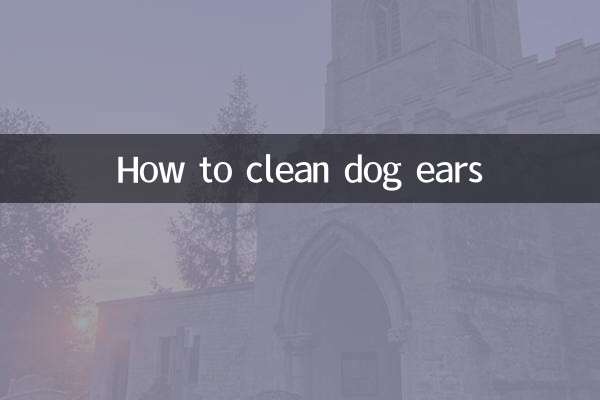How to take care of a newborn puppy
Newborn puppies require special care and attention to ensure they grow up healthily. Here's a detailed guide on how to care for a newborn puppy, including feeding, keeping warm, health checks, and more.
1. Feeding

Newborn puppies rely mainly on their mother's milk for the first few weeks of their lives. If the female dog is unable to breastfeed, she needs to be artificially fed with special dog milk powder. The following is a reference table for feeding frequency and amount:
| age | Feeding frequency | Amount of milk per feeding |
|---|---|---|
| 1-7 days | every 2 hours | 5-10ml |
| 8-14 days | every 3 hours | 10-20ml |
| 15-21 days | every 4 hours | 20-30ml |
| 22-28 days | every 6 hours | 30-40ml |
Note:When feeding, a special bottle should be used to ensure that the milk temperature is around 38°C to avoid overheating or coldness.
2. Keep warm
Newborn puppies are unable to regulate their own body temperature and require additional warmth. Here are some tips for keeping warm:
| Ways to keep warm | Specific operations |
|---|---|
| Use a heating pad | Adjust the heating pad temperature to 28-32°C to avoid direct contact with the puppy’s skin |
| thermal blanket | Place a soft thermal blanket in the nest and change it regularly to keep it dry |
| ambient temperature | Keep the indoor temperature at 24-26°C and avoid drafts or low temperatures |
3. Health examination
It is important to check your puppy's health regularly. The following are common health check items:
| Check items | normal behavior | abnormal behavior |
|---|---|---|
| weight | Gain 5-10 grams per day | No weight gain or loss |
| Defecation | Light yellow, soft | Diarrhea, constipation, or blood |
| mental state | Lively and appetitive | Lethargy, refusal to eat |
4. Hygiene and cleanliness
The hygiene of newborn puppies requires special attention, especially cleaning after excretion:
| cleaning project | Operation suggestions |
|---|---|
| Cleaning after excretion | Gently wipe the anus and urethra with a cotton ball soaked in warm water |
| Cleaning the nest | Change litter every day and keep it dry and clean |
| body cleansing | Avoid bathing and use a wet towel to wipe dirty areas |
5. Vaccination and deworming
Puppies need to be vaccinated and dewormed after birth as recommended by your veterinarian:
| age | Vaccines/Deworming | Things to note |
|---|---|---|
| 2 weeks | First time deworming | Use deworming medicine specifically for puppies |
| 6 weeks | first dose of vaccine | Usually canine distemper, parvovirus, etc. |
| 10 weeks | Second dose of vaccine | boost immunity |
6. Socialization training
Starting from the age of 3 weeks, puppies can be gradually socialized to help them adapt to the environment and human contact:
| Training content | Specific methods |
|---|---|
| Contact with humans | Allow your puppy to get used to human smells and sounds with gentle petting every day |
| environmental adaptation | Gradually introduce you to different sounds, lights, and other pets |
| basic instructions | Start training by simply "sit down" and "come here" |
Summary
Taking care of a newborn puppy requires patience and care. From feeding and keeping warm to health check-ups, every step is crucial. Following the advice above can help your puppy grow up healthily and lay a good foundation for future socialization. If anything unusual happens, please contact your veterinarian promptly.

check the details

check the details